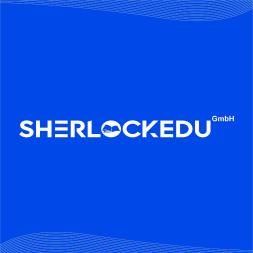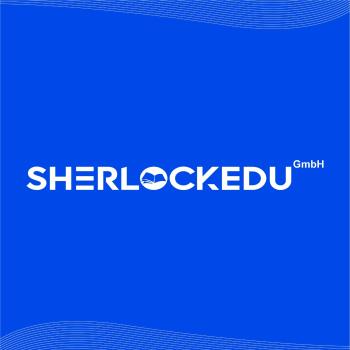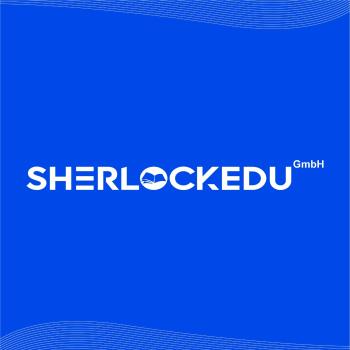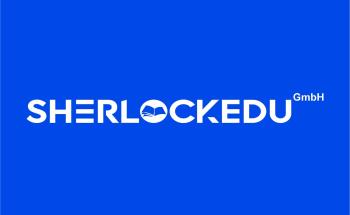
DIGITAL HORIZONS - EQUIPPING EDUCATORS FOR TECHNOLOGY-INTEGRATED LEARNING-VIENNA
Throughout the course, participants will engage in a variety of activities, including lectures, hands-on workshops, discussions, case studies, and collaborative projects. They will also have opportunities to explore Erasmus+ projects related to digital education and leverage insights from these initiatives to enhance their own teaching practices.
Description
Day 1: Understanding the Digital Landscape in Education
- Introduction to the course and objectives
- Overview of the digital transformation in education
- Importance of technology integration for enhancing teaching and learning
- Exploring digital literacy skills for educators
- Understanding the benefits and challenges of technology integration in the classroom
- Introduction to Erasmus+ projects focusing on digital education
Day 2: Leveraging Digital Tools for Pedagogical Enhancement
- Overview of educational technology tools and resources
- Integrating digital tools to support diverse learning styles and needs
- Strategies for designing engaging and interactive digital learning experiences
- Exploring innovative teaching methods such as gamification, flipped classrooms, and blended learning
- Hands-on practice with selected digital tools and platforms
- Case studies and best practices from Erasmus+ projects on technology-enhanced education
Day 3: Fostering Digital Citizenship and Online Safety
- Understanding the importance of digital citizenship education
- Promoting responsible and ethical use of technology among students
- Teaching strategies for addressing digital literacy, online safety, and cyberbullying
- Collaborating with parents, guardians, and communities to promote digital citizenship
- Exploring Erasmus+ projects focusing on digital citizenship and online safety
Day 4: Assessing and Evaluating Technology-Integrated Learning
- Overview of assessment strategies for technology-enhanced education
- Exploring tools and methods for formative and summative assessment in digital learning environments
- Incorporating feedback and reflection into technology-integrated lessons
- Addressing challenges and considerations in assessing digital learning outcomes
- Analyzing assessment practices and outcomes from Erasmus+ projects on digital education
Day 5: Empowering Educators for Ongoing Professional Development
- Reflecting on personal experiences and challenges in integrating technology into teaching practice
- Identifying opportun
Learning objectives
- Understanding the current landscape of digital technology in education, including its potential benefits and challenges.
- Exploring various educational technology tools and resources available for classroom integration.
- Developing proficiency in using digital tools to enhance teaching and learning experiences.
- Learning strategies for designing engaging and interactive digital learning activities that cater to diverse learner needs.
- Understanding the principles of digital citizenship and fostering responsible online behavior among students.
- Acquiring skills in assessing and evaluating technology-integrated learning outcomes effectively.
- Identifying opportunities for collaboration with parents, guardians, and communities to support digital learning initiatives.
- Exploring innovative teaching methodologies such as gamification, flipped classrooms, and blended learning approaches.
- Reflecting on personal teaching practices and identifying areas for improvement in integrating technology into instruction.
- Exploring successful Erasmus+ projects related to digital education and drawing insights for enhancing own teaching practices.
- Developing personalized action plans for implementing technology-integrated teaching strategies in participants' own classrooms.
- Establishing networks and communities of practice for ongoing support and professional development in digital education.
- Evaluating the impact of the course and setting goals for continued growth and innovation in technology-integrated learning.
Methodology & assessment
Pedagogical Approaches: Teacher training courses typically employ various pedagogical approaches to model effective teaching practices. This may include lectures, interactive seminars, workshops, and hands-on teaching experiences.
Practical Teaching Experience: Practical teaching experience is a fundamental component of teacher training. Participants often have opportunities to observe experienced educators and engage in actual teaching in classrooms or educational settings. Feedback and guidance from mentors are essential during these experiences.
Collaborative Learning: Collaborative learning is often encouraged in teacher training courses. Participants may work in groups to develop teaching materials, lesson plans, and teaching strategies. Collaborative projects can promote the exchange of ideas and best practices.
Reflective Practice: Reflective practice is a crucial aspect of teacher training. Participants are encouraged to reflect on their teaching experiences, analyze their teaching methods, and consider how to improve their practice. Journals, written reflections, and discussions are common tools for fostering reflective practice.
Assessment
Written Assignments: Teacher training courses often include written assignments, such as research papers, case studies, or essays, on topics related to education and teaching methods.
Examinations: Some teacher training courses may include written examinations to assess participants' understanding of pedagogical theories, educational psychology, and other relevant subjects.
Professionalism and Communication: Assessment may also consider participants' professionalism, communication skills, and ability to collaborate with colleagues, parents, and students.
Feedback and Self-Assessment: Regular feedback from mentors and self-assessment are crucial components of teacher training assessment. Participants are encouraged to use feedback to improve their teaching skills
Certification details
- Completion Certificate: Upon successfully completing a teacher training course, you will typically receive a completion certificate or diploma from the training provider or institution. This certificate acknowledges your participation and successful completion of the training.
- Course Duration: The duration of teacher training courses can vary widely. Some may be short-term workshops or seminars, while others may be more comprehensive and span several weeks or months. The certificate may indicate the total number of hours or credits completed.
- Content and Curriculum: The certificate should outline the key topics, content, and skills covered during the training. This information helps future employers or educational institutions understand the scope of your training.
- Credits or Continuing Education Units (CEUs): In some cases, teacher training courses may offer academic credits or Continuing Education Units (CEUs). These credits can be valuable for professional development and may be recognized by educational authorities or institutions.
- Language of Instruction: If the teacher training course is conducted in a language other than your native language, the certificate may indicate your language proficiency level or the language in which the training was delivered.
- Evaluation and Assessment: Teacher training courses often involve assessments or evaluations of your performance. The certificate may include information about your performance in the training, such as grades or evaluations.
- Recognition and Accreditation: Ensure that the teacher training course and the institution providing it are recognized and accredited by relevant educational authorities or professional bodies. This can affect the credibility and transferability of your certificate.
- Pedagogical Practices: If the training includes practical teaching experience or classroom observations, the certificate may highlight your proficiency in specific pedagogical practices or teaching methodologies.
Pricing, packages and other information
-
Price:400Euro
Additional information
-
Language:English
-
Target audience ISCED:Primary education (ISCED 1)Lower secondary education (ISCED 2)Upper secondary education (ISCED 3)
-
Target audience type:TeacherHead Teacher / PrincipalICT Coordinator
-
Learning time:25 hours or more
Upcoming sessions
Past sessions
More courses by this organiser

STAGECRAFT: ENHANCING SOFT SKILLS THROUGH DRAMA-BERLIN

INTERSECTIONAL EDUCATION- AN INCLUSIVE APPROACH TO DIVERSITY-HELSINKI


